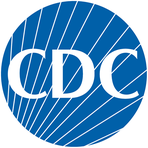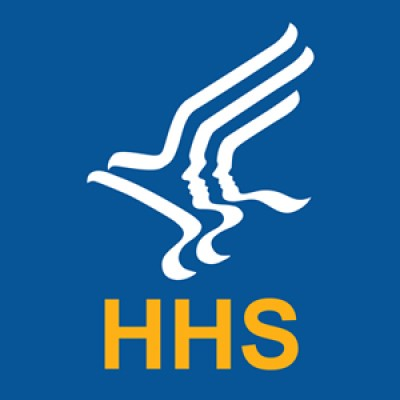A New Era for Vaccine Advisory: RFK Jr. Cleans House at CDC
June 11, 2025, 4:52 am

Location: United States, Georgia, Atlanta
Employees: 10001+
Founded date: 1946

Location: United States, District of Columbia, Washington
Employees: 10001+
Founded date: 1953
Total raised: $56.52M
In a bold and controversial move, Health and Human Services Secretary Robert F. Kennedy Jr. has dismissed all 17 members of the Advisory Committee on Immunization Practices (ACIP). This sweeping change marks a significant shift in the landscape of vaccine advisory in the United States. Kennedy's decision has ignited a firestorm of debate, raising questions about the future of public health policy and the integrity of vaccine recommendations.
Kennedy's rationale for this drastic overhaul is rooted in a desire to restore public trust in vaccine science. He claims that the existing committee was plagued by conflicts of interest and had become a mere rubber stamp for vaccine approvals. By removing the entire panel, he aims to wipe the slate clean and bring in new voices that align with his vision for health policy.
The ACIP plays a crucial role in shaping vaccine recommendations in the U.S. This committee advises the Centers for Disease Control and Prevention (CDC) on who should receive vaccines and under what circumstances. Their recommendations influence insurance coverage and public health initiatives. The stakes are high, and the implications of Kennedy's actions could reverberate throughout the healthcare system.
Critics argue that Kennedy's approach is more about politics than public health. The members he dismissed were appointed during the Biden administration, and their removal appears to be a strategic move to pave the way for new appointments that align with Kennedy's views. This raises concerns about the politicization of a committee that has historically operated independently of political influence.
The previous ACIP members were experts in their fields, tasked with making recommendations based on rigorous scientific evidence. They were required to disclose any potential conflicts of interest, ensuring transparency in their decision-making processes. Kennedy's assertion that the committee was compromised lacks concrete evidence, leading many to question the validity of his claims.
The timing of this announcement is also noteworthy. It comes on the heels of a resignation from Dr. Lakshmi Panagiotakopoulos, a pediatric infectious disease expert who stepped down due to concerns about her ability to serve vulnerable populations. This resignation underscores the growing discontent within the ranks of public health experts and raises alarms about the direction in which Kennedy is steering the HHS.
Kennedy's critics fear that the new committee could produce recommendations that emphasize the risks of vaccines rather than their benefits. This shift could further erode public trust in the CDC and the broader healthcare system. In a time when vaccine hesitancy is already a pressing issue, the potential for politicized recommendations could exacerbate the problem.
Historically, the ACIP has not shied away from scrutinizing vaccine products. There have been instances where the committee recommended more restricted use of vaccines than what the FDA approved. This independent oversight is crucial for maintaining the integrity of vaccine recommendations. If the new committee deviates from this path, it could lead to a significant public health crisis.
Kennedy's promise to prioritize public trust over any pro- or anti-vaccine agenda sounds noble, but the reality may be more complex. The public's perception of vaccines is already fragile, and any misstep could lead to a further decline in vaccination rates. The consequences of this could be dire, especially in the face of emerging infectious diseases.
The Affordable Care Act mandates that insurers cover vaccines listed on the CDC's schedules. This means that the recommendations made by ACIP have far-reaching implications for access to vaccines. If the new committee adopts a more restrictive stance, it could limit access to essential vaccines for millions of Americans, particularly those without insurance.
As Kennedy moves forward with this overhaul, the question remains: who will fill the shoes of the dismissed members? The selection process for new appointees will be closely scrutinized. If the new members lack the necessary expertise or are perceived as politically motivated, it could further undermine public confidence in the vaccine advisory process.
In conclusion, Kennedy's decision to dismiss the entire ACIP is a watershed moment in U.S. public health policy. It reflects a broader trend of politicization in health care, where scientific recommendations are increasingly influenced by political agendas. The implications of this move are profound, and the future of vaccine policy hangs in the balance. As the new committee takes shape, the eyes of the nation will be watching closely. The stakes are high, and the path forward is fraught with uncertainty. The health of the American public may depend on the choices made in the coming months.
Kennedy's rationale for this drastic overhaul is rooted in a desire to restore public trust in vaccine science. He claims that the existing committee was plagued by conflicts of interest and had become a mere rubber stamp for vaccine approvals. By removing the entire panel, he aims to wipe the slate clean and bring in new voices that align with his vision for health policy.
The ACIP plays a crucial role in shaping vaccine recommendations in the U.S. This committee advises the Centers for Disease Control and Prevention (CDC) on who should receive vaccines and under what circumstances. Their recommendations influence insurance coverage and public health initiatives. The stakes are high, and the implications of Kennedy's actions could reverberate throughout the healthcare system.
Critics argue that Kennedy's approach is more about politics than public health. The members he dismissed were appointed during the Biden administration, and their removal appears to be a strategic move to pave the way for new appointments that align with Kennedy's views. This raises concerns about the politicization of a committee that has historically operated independently of political influence.
The previous ACIP members were experts in their fields, tasked with making recommendations based on rigorous scientific evidence. They were required to disclose any potential conflicts of interest, ensuring transparency in their decision-making processes. Kennedy's assertion that the committee was compromised lacks concrete evidence, leading many to question the validity of his claims.
The timing of this announcement is also noteworthy. It comes on the heels of a resignation from Dr. Lakshmi Panagiotakopoulos, a pediatric infectious disease expert who stepped down due to concerns about her ability to serve vulnerable populations. This resignation underscores the growing discontent within the ranks of public health experts and raises alarms about the direction in which Kennedy is steering the HHS.
Kennedy's critics fear that the new committee could produce recommendations that emphasize the risks of vaccines rather than their benefits. This shift could further erode public trust in the CDC and the broader healthcare system. In a time when vaccine hesitancy is already a pressing issue, the potential for politicized recommendations could exacerbate the problem.
Historically, the ACIP has not shied away from scrutinizing vaccine products. There have been instances where the committee recommended more restricted use of vaccines than what the FDA approved. This independent oversight is crucial for maintaining the integrity of vaccine recommendations. If the new committee deviates from this path, it could lead to a significant public health crisis.
Kennedy's promise to prioritize public trust over any pro- or anti-vaccine agenda sounds noble, but the reality may be more complex. The public's perception of vaccines is already fragile, and any misstep could lead to a further decline in vaccination rates. The consequences of this could be dire, especially in the face of emerging infectious diseases.
The Affordable Care Act mandates that insurers cover vaccines listed on the CDC's schedules. This means that the recommendations made by ACIP have far-reaching implications for access to vaccines. If the new committee adopts a more restrictive stance, it could limit access to essential vaccines for millions of Americans, particularly those without insurance.
As Kennedy moves forward with this overhaul, the question remains: who will fill the shoes of the dismissed members? The selection process for new appointees will be closely scrutinized. If the new members lack the necessary expertise or are perceived as politically motivated, it could further undermine public confidence in the vaccine advisory process.
In conclusion, Kennedy's decision to dismiss the entire ACIP is a watershed moment in U.S. public health policy. It reflects a broader trend of politicization in health care, where scientific recommendations are increasingly influenced by political agendas. The implications of this move are profound, and the future of vaccine policy hangs in the balance. As the new committee takes shape, the eyes of the nation will be watching closely. The stakes are high, and the path forward is fraught with uncertainty. The health of the American public may depend on the choices made in the coming months.
